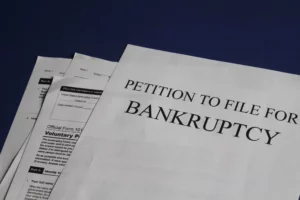Property and Real Estate Disputes in Thailand. Thailand’s vibrant property sector, encompassing residential, commercial, and industrial real estate, is a magnet for both domestic and foreign investors. However, like any active property market, disputes inevitably arise — over ownership, contracts, boundaries, development rights, leases, and more. Given the high value of real estate assets and the complex web of Thai laws governing property, such disputes can be costly, time-consuming, and legally intricate.
This article provides an in-depth examination of property and real estate disputes in Thailand, their causes, applicable legal principles, resolution mechanisms, and practical considerations for both Thai and foreign stakeholders.
Legal Framework Governing Property Disputes
Real estate disputes in Thailand are primarily governed by:
-
The Civil and Commercial Code (CCC) — covering contracts, ownership, leases, mortgages, servitudes, co-ownership, and obligations.
-
The Land Code Act B.E. 2497 (1954) — governing land title, registration, and official records.
-
The Condominium Act B.E. 2522 (1979) — regulating condominium ownership and co-ownership rights.
-
The Land Development Act B.E. 2543 (2000) — overseeing land subdivision and development.
-
The Foreign Business Act B.E. 2542 (1999) — relevant where foreign entities or individuals are involved in property transactions linked to restricted businesses.
Thai courts apply these laws alongside administrative regulations, ministerial notifications, and zoning or planning laws as appropriate.
Common Types of Property and Real Estate Disputes
1️⃣ Ownership and Title Disputes
Ownership disputes often arise from:
-
Overlapping claims due to defective title registration, boundary errors, or fraudulent conveyances.
-
Forgery of title deeds, particularly in cases involving Chanote or Nor Sor 3 Kor titles.
-
Inheritance-related claims, where multiple heirs or claimants assert rights over a property.
-
Foreign nationals attempting indirect ownership through illegal nominee structures (which are prohibited and can result in loss of property rights).
Courts adjudicate these disputes based on documentary evidence (title deeds, registration records), witness testimony, and official land surveys.
2️⃣ Boundary and Encroachment Disputes
Disputes between neighboring landowners commonly involve:
-
Claims of encroachment where buildings, walls, or land use cross onto adjoining land.
-
Conflicting interpretations of boundary markers versus actual land use.
-
Errors in land measurements on title deeds compared to physical reality.
Resolution usually requires official land surveys or expert appraisals, and the court may order removal of structures, restoration of boundaries, or compensation.
3️⃣ Breach of Sale and Purchase Agreements
Contractual disputes arise where:
-
The seller refuses to transfer title despite receiving payment.
-
The buyer fails to complete payment or fulfill contractual obligations.
-
Conditions precedent (e.g., securing permits or financing) are unmet, leading to disagreements over deposit forfeiture or contract termination.
Parties may seek remedies such as specific performance, rescission of contract, or damages.
4️⃣ Lease and Tenancy Disputes
These disputes typically involve:
-
Allegations of unlawful eviction or refusal to vacate.
-
Non-payment of rent or breach of lease terms.
-
Disagreements over lease renewal rights or subletting.
Leases over three years must be registered at the Land Office to be enforceable beyond three years. Many disputes stem from unregistered long-term leases or ambiguous lease clauses.
5️⃣ Condominium and Co-Ownership Disputes
Common disputes include:
-
Mismanagement of common property or funds by the condominium juristic person.
-
Non-payment of maintenance fees by co-owners.
-
Unauthorized modifications or use of common areas.
The Condominium Act provides procedures for enforcement of co-owners’ obligations and remedies for mismanagement.
6️⃣ Construction and Development Disputes
These can arise from:
-
Developer failure to complete a project in compliance with plans, permits, or contractual specifications.
-
Disputes between contractors, subcontractors, and property owners over defective work, delays, or unpaid fees.
-
Breach of obligations under land development licenses.
Legal Remedies in Thai Property Disputes
Depending on the nature of the dispute, available remedies include:
-
Specific performance (e.g., compelling transfer of title or honoring contract terms).
-
Cancellation or rescission of contracts.
-
Damages for breach or tortious conduct.
-
Injunctions to prevent ongoing encroachment or unlawful construction.
-
Restitution or return of property or funds.
-
Court-ordered removal of encroachments or demolition of unlawful structures.
Dispute Resolution Mechanisms
1️⃣ Civil Court Litigation
-
Most property disputes are adjudicated by the Civil Courts or Provincial Courts, depending on property location.
-
Courts rely heavily on registered title documents, expert reports (e.g., land surveys), and witness testimony.
-
Proceedings are conducted in Thai; all documents must be in or translated into Thai.
2️⃣ Administrative Processes
-
Some disputes may first require administrative action (e.g., rectification of title records at the Land Office, boundary demarcation).
3️⃣ Mediation
-
Courts encourage pre-trial and in-trial mediation to achieve amicable settlements.
-
Court-annexed mediators facilitate agreements without proceeding to judgment.
4️⃣ Arbitration
-
Where agreed by contract (e.g., construction contracts, joint venture agreements), arbitration may be used.
-
Arbitration awards are enforceable in Thailand under the Arbitration Act B.E. 2545 (2002).
Special Considerations for Foreigners
-
Foreigners cannot directly own land except under very limited exemptions (e.g., BOI-promoted projects). Any arrangement to circumvent this (e.g., nominee structures) is illegal and unenforceable.
-
Foreigners can own condominium units (up to 49% of the saleable area in a building).
-
Cross-border enforcement of judgments may be required where foreign parties or assets are involved.
-
Language and legal system differences necessitate expert legal assistance.
Enforcement of Court Judgments
If successful, the prevailing party may:
-
Register the judgment with the Land Office to effect title transfer or cancel unlawful registrations.
-
Initiate execution proceedings (e.g., property seizure, public auction) to satisfy monetary judgments.
Enforcement can be delayed if the losing party files appeals or resists execution.
Preventive Measures
To minimize risk of disputes:
✅ Conduct thorough due diligence — title searches, boundary verification, check for encumbrances or disputes.
✅ Use professionally drafted contracts — ensure clarity on rights, obligations, and remedies.
✅ Register rights properly — leases, mortgages, servitudes, or transfers should be registered at the Land Office.
✅ Avoid illegal ownership structures — especially nominee arrangements for land.
✅ Monitor construction compliance — ensure permits and plans match actual development.
Conclusion
Property and real estate disputes in Thailand can involve complex legal and factual issues, particularly where ownership, boundaries, or contracts are concerned. With significant financial stakes and potential regulatory implications, navigating these disputes requires careful legal strategy, adherence to due process, and often expert technical input. Whether you are a Thai national or a foreign investor, prudent preparation, robust agreements, and timely legal advice are essential to protect your interests and resolve disputes effectively.










